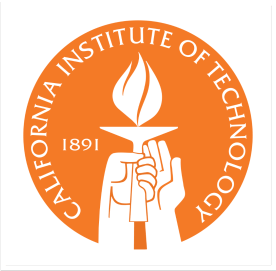
- Majors & Careers
- Online Grad School
- Preparing For Grad School
- Student Life

The Top 9 Fully Funded PhD Programs
If you’re concerned about grad school costs, you’re not alone. Even with financial aid, many students find themselves taking on large amounts of debt. However, there are a number of options that can cover most – if not all – of your doctorate costs.
Table of Contents
What Is a Fully Funded PhD Program?
“Fully funded” means that the university offers sufficient funding to cover tuition fees and even a stipend to cover other grad school expenses . To cover gaps, many institutions offer additional support in the form of grants, scholarships, loans, and employment opportunities.
Though rare, some PhD programs offer full funding for all accepted students. Understandably, the admission process is highly competitive for fully funded PhD programs.
Students who don’t meet strict criteria – and aren’t offered full funding – will be expected to pay for their tuition and other study expenses. Most take some form of government funding to do so.
The Top 9 Fully Funded PhD Programs in the US
1. the university of chicago, the department of anthropology, phd in anthropology.

- Courses : Development of Social/Cultural Theory, Archeological Theory & method, and archeological data sets.
- Credits : 18 courses
- Delivery : On-campus
- Full funding : Full tuition, health insurance, and stipend (up to 9 years).
- Other support : Grants, fellowships, and teaching opportunities.
- Acceptance rate : 2.5%
- Location : Chicago, Illinois
With a culture that encourages independent thinking, the University of Chicago has produced more than 90 Nobel Prize winners and produced defining research in several fields. In this interdisciplinary PhD in Anthropology program, students can study with many of the university’s other departments, including: Political Science, History, and Comparative Human Development.
2. Harvard University, T. H. Chan School of Public Health
Phd program in biological sciences in public health (bph).

- Courses : Biological sciences communications, principles of biostatistics & epidemiology, and computing environments for biology.
- Duration : Approximately 6 years
- Full funding : Stipend, tuition, and health insurance.
- Other support: Fellowships, awards, and grants.
- Acceptance rate: 6%
- Location: Boston, Massachusetts
As the third-best university in the US , Harvard’s T. H. Chan School of Public Health has incredible prestige. With several specialized public health departments (e.g., Environmental Health, Health & Population, Epidemiology), this program also offers incredible flexibility. Students can courses from the Department of Public Health, Harvard Integrated Life Sciences (HILS), and even MIT.
3. Stanford University, Graduate School of Education
Phd in curriculum studies and teacher education (cte).

- Courses: Introduction to statistical methods in education, research in curriculum & teacher education, and statistical analysis in education.
- Credits: 135 units
- Duration: 4-5 years
- Delivery: On-campus
- Full funding : Tuition aid, assistantship salary, and fellowship stipend (for 5 years).
- Other support : Grants, travel fellowships, and emergency funds.
- Location: Stanford, California
Stanford University tops the list of the best universities for Education Policy Studies, making this one of the best options if you want to earn a PhD in Education. This doctorate is one of the top fully funded PhD programs in education and offers six specializations, including elementary education, teacher education, and science & environmental education.
Note : In addition to this on-campus PhD program, many recognized institutions also offer free online PhD programs in education .
4. Duke University, Trinity College of Arts and Sciences
Phd in literature.

- Courses: Wide range of literary topics, including African American Studies, modern European short fiction, gender studies, and more.
- Duration: 6-7 years
- Delivery: On-campus
- Full funding includes: Tuition, fees, stipend, and health insurance.
- Other support: Grants, loans, childcare subsidies, and financial hardship aid.
- Location: Durham, North Carolina
As one of the country’s most renowned private research institutions, Duke University has ten Nobel Laureates under its belt. Their PhD in Literature program encourages students to pursue both independent studies and inter-institutional courses from other affiliated universities. Students are able to take as many programs outside literature as they wish. Typically, all PhD students receive a “stipend, tuition, and fees support, plus six years of full coverage for health and dental insurance premiums.”
5. Rice University, Jones Graduate School of Business
Phd in business.

- Courses: Microeconomics, econometrics, theory, and dynamic optimization.
- Duration: 4 years +
- Full funding : Tuition waiver and $40,000 yearly stipend (earned as a research/teaching assistant).
- Other support: Scholarships, grants, loans, and student employment.
- Location: Houston, Texas
Rice University is a well-known institution and is regularly recognized as one of the best business schools in the country. As part of its PhD in Business program, students can choose between one of four different concentrations: accounting, finance, organizational behavior, and strategic management.
Northwestern University, McCormick School of Engineering
Phd in biomedical engineering.

- Courses: Experimental design & measurement, biological performance of materials, and advanced physical & applied optics.
- Duration: 5-6 years
- Full funding : Tuition scholarship and stipend.
- Other support: Fellowships, grants, assistantships, loans, and veteran benefits.
- Acceptance rate: 15%
- Location: Evanston, Illinois
Northwestern University is renowned for excellence across numerous disciplines, and its biomedical engineering (BME) program was among the first of its kind. The school offers a wide range of courses, from cell and molecular engineering, medical devices and instrumental, neural engineering, and more.
7. Columbia University, Teachers College
Phd in clinical psychology.

- Courses: Brain & behavior, social problems for clinical psychologists, and personality & behavior change.
- Credits: 95
- Duration: 5 years (at least four years of residency)
- Full funding : Tuition, stipend, and health fees (up to 4 years).
- Other support: Scholarships, grants, fellowships, federal work-study, assistantships, and loans.
- Acceptance rate: 7%
- Location: New York City, New York
Columbia University offers a leading clinical psychology PhD program that focuses on the intersection between education, psychology, and health. Their fully funded, need-blind “Doctoral Fellowship” is given to incoming students for three years, in addition to financial aid in the fourth year (i.e., a $25,000 stipend). PhD students who receive this scholarship may be asked to work as research assistants or graduate teachers.
8. California Institute of Technology, Division of Engineering & Applied Science
Graduate degree in computer science.

- Courses: Functional programming, computability theory, and advanced digital systems design.
- Credits: 54 units
- Duration: 3+ years of residence
- Full funding : Tuition charges and stipends.
- Other support: Grants, scholarships, loans, and work-study.
- Acceptance rate: 7%
- Location: Pasadena, California
Caltech is a huge name in technology education, with over fifty cutting-edge research centers and laboratories. This includes NASA’s Jet Propulsion Laboratory and astronomical observatories around the globe. To manage their rigorous course load, graduate students of the computer science program receive full tuition and a stipend of $45,000 .
9. Emory University, College of Arts and Sciences
Ph.D. in Economics

- Courses: Microeconomic theory, health economics, and market structure & imperfect competition.
- Credits: 55
- Duration: 4-6 years
- Full funding : Tuition, stipend, health insurance subsidy, and professional development support.
- Other support: Grants, scholarships, loans, and student employment.
- Acceptance rate: 19%
- Location: Atlanta, Georgia
Emory University provides a liberal arts college’s atmosphere and opportunities combined with an urban research university’s facilities. This cross-registration program allows students to take classes at the university’s partner institutions, including Georgia Tech and Georgia State University, alongside their in-house courses.
Can I Earn a Free PhD Degree Online?
If you aren’t eligible for a fully funded program, that’s okay! We’ve written an article outlining the most affordable online PhD programs , the benefits, and how to apply to them!
Key Takeaways
Many US universities – including some of the country’s top institution – offer fully funded PhD programs and tuition-free online programs across various disciplines. You’ll just need to demonstrate that you’re eligible for the program through your academic performance and merit.
Once you qualify for full PhD funding, congratulate yourself on a job well done!
If you’re still weighing your options, did you know there are 1-year PhD programs online ?
Frequently Asked Questions
Can a phd be free.
Yes. Eligible students can obtain a doctorate for free if a university offers fully funded PhD programs.
How Do I Get a Fully Funded PhD?
To qualify for a fully funded PhD, you’ll be required to meet certain criteria and put together a strong application. You’ll also need to have an excellent undergraduate academic record, recommendation letters, persuasive personal essay, and graduate school entry exam scores .
Fully funded PhDs are incredibly competitive, so it’s important to plan ahead. As an undergraduate student, identify your dream school, and be sure to check the requirements and eligibility criteria. Next, work hard to meet these requirements – and set yourself apart – throughout your undergraduate studies.
Can I Study a PhD in the USA for Free?
Yes. Many US universities offer opportunities to obtain a PhD for free. For example, fully funded doctoral programs will cover your tuition and expenses. Free PhD programs don’t have tuition fees but students are responsible for covering their own expenses.
However, if you aren’t successful in securing a fully funded PhD and don’t like the free options, there are plenty of other ways to pay for grad school .

Lisa Marlin
Lisa is a full-time writer specializing in career advice, further education, and personal development. She works from all over the world, and when not writing you'll find her hiking, practicing yoga, or enjoying a glass of Malbec.
- Lisa Marlin https://blog.thegradcafe.com/author/lisa-marlin/ ACBSP Vs AACSB: Which Business Program Accreditations is Better?
- Lisa Marlin https://blog.thegradcafe.com/author/lisa-marlin/ BA vs BS: What You Need to Know [2024 Guide]
- Lisa Marlin https://blog.thegradcafe.com/author/lisa-marlin/ The 19 Best MBA Scholarships to Apply for [2024-2025]
- Lisa Marlin https://blog.thegradcafe.com/author/lisa-marlin/ 25 Best Gifts for Law Students for 2024
Top 10 Best Master’s in Business Intelligence Programs
5 tips for an amazing video interview, related posts.

The 18 Best Scholarships for Black Students in 2024-2025

The 19 Best MBA Scholarships to Apply for [2024-2025]

Top 30 Scholarships for Women for 2022/2024

Top 10 Best 1-Year PhD Programs Online

Graduate School Scholarships: A Comprehensive Guide

How Much Does Grad School Cost? A Simple Guide

Leave a Reply Cancel reply
Your email address will not be published. Required fields are marked *
Save my name, email, and website in this browser for the next time I comment.
Recent Posts
- Is a Master’s Degree Worth It? [2024 Guide]
- 73% of job seekers believe a degree is needed for a well-paying role–but is it?
- Graduate Certificate vs Degree: What’s the Difference? [2024 Guide]
- ACBSP Vs AACSB: Which Business Program Accreditations is Better?
- What is a Good GRE Score?

© 2024 TheGradCafe.com All rights reserved
- Partner With Us
- Results Search
- Submit Your Results
- Write For Us
- Communications
- Computer Science
- Criminal Justice
- Environmental Management
- Forensic Psychology
- Healthcare Admin
- Human Resources
- Project Management
- Social work
- Special Education
- Sports Management
- Supply Chain Management
- Adult Education
- Business Intelligence
- Early Childhood Education
- Educational Technology
- Homeland Security
- Information Systems Security
- Information Technology
- International Business
- Management Information Systems
- Nonprofit Management
- School Counseling
- Academic Publishing Guide
- Building a Graduate School Resume or CV
- Choosing Between a Thesis or Non-thesis Master's Degree
- Expert Guide to Studying Abroad
- FAQ: Online Master's Degrees
- Grad School Guide Book
- Graduate School for Students with Disabilities
- Green Graduate Degrees
- How to Be a Successful Grad Student
- How to Choose the Right Graduate Program
- How to Get a Master's Degree in an Unrelated Field
- How to Transfer College Credits in Grad School
- How to Write a Winning Personal Statement
- Inside Graduate Admissions
- Ivy League Grad Schools
- Master's Degrees for Veterans
- Master's Degree for Women
- Mental Health in Grad School
- Progressive LGBTQ Graduate Degrees
- Should You Apply for a Graduate School Assistantship?
- Surviving Grad School with a Family
- Taking a Gap Year Before Grad School
- Women in STEM Graduate Resources
- Writing a Successful Statement of Purpose
- Alternative Ways to Pay for School
- The Best Part-Time Jobs During Grad School
- Company Funded Graduate School
- FAFSA For Grad Students
- Financial Aid Resources
- Graduate Student Loans
- Paying for Your Master's Degree
- Paying Off Student Loans
- Paying for Your PhD
- Fellowship Opportunities
- LGBTQ Scholarships
- MBA Scholarships
- Scholarship Resources
- Scholarships for Veterans
- Scholarships for Women
- Crushing the GRE Guidebook
- GMAT Guidebook
- Guide to the LSAT
- MCAT Prep for Medical School
- Study Guide: Exam Resources
- TOEFL Prep for Non-Native English Speakers
- Financial Aid PhD Scholarships and Financial Aid
PAYING FOR YOUR PHD Expert Tips, Scholarships Opportunities and Resources for Financing an Advanced Degree
The average yearly tuition for a PhD program is slightly above $16,000, which means students will invest about $80,000 in tuition fees alone for a five-year program. Add in fees, cost-of-living, travel expenses and the figure can easily surpass six figures. Yet, it is possible to fund a PhD program without breaking the bank and going into debt.
Featured Online Schools
- PhD Cost Breakdown
- PhD Financial Aid Options
- Expert Spotlight: Lawrence Burns, PhD
- Earning Outlook for Phd Students
- Most Lucrative PhD Careers
- Expert Spotlight: Darren Pierre, PhD
- PhD: By The Numbers
- Additional Financial Aid Resources
PHD COST BREAKDOWN
The value of a college education should not be understated, but neither should its actual cost. Earning a doctoral degree can be an expensive proposition. According to the latest data from the National Center for Education Statistics, the average tuition and fees for a graduate program of study was $16,435 in 2012-2013. The table below outlines the 2012-2013 graduate tuition and fees by academic institution.
- All Institutions $16,435
- Public $10,408
- Private Non-Profit $23,698
- Private For-Profit $14,418
Source: National Center for Education Statistics
A rough calculation of the number of years it takes to complete a doctoral program, multiplied by the average 2012-2013 tuition and fees from the NCES, reveals the following total cost figures by academic field of study.
A five- to six-figure education is something to take seriously as there are debt implications after leaving finishing a PhD program. Graduating doctoral students in 2013 left school with an average debt of just over $15,000, according to the National Science Foundation. By field, students in the Social Sciences, Education and Humanities graduate with the highest levels of student debt:
- Education: $26,566
- Social Sciences: $26,222
- Humanities: $21,485
Conversely, the science and technology fields graduate students with the lowest debt figures:
- Physical Sciences: $6,342
- Engineering: $7,031
- Life Sciences: $11,905
- Physical Sciences 78.2%
- Engineering 75.1%
- Life Sciences 67.2%
- Humanities 48.4%
- Social Sciences 46.5%
- Education 44.1%
Source: National Science Foundation, Survey of Earned Doctorates, 2013
While these figures may seem alarming, a deeper dive into survey data from the National Science Foundation actually paints a more positive picture. Overall, more than 62 percent of all doctoral recipients graduate from school without a single dollar of debt.
Prospective students can use the table below to get a better sense of the percentage of students who take on debt at incremental levels in each field of academic study. A majority of students graduate with $10,000 or less in debt after finishing their doctoral degree.
PhD Cost Factors
The total cost of earning a doctoral degree is variable because of the sheer number of different factors involved. Tuition is not the only cost to consider when thinking about applying to a PhD program.
Typically, students pay full tuition rates during their first three years of doctoral study and receive reduced tuition rates for the remainder of the program. However, the actual cost of tuition does vary and may be dependent on the student’s actual degree program.
Graduate students pay a range of fees, with the most common including:
- Health Services (access to health facilities on campus)
- Health Insurance (personal health insurance)
- Student Activity (subsidizes athletics and other clubs)
- Student Recreation (access to recreational facilities on campus)
Some programs estimate students should be prepared to pay between $3,000 and $4,500 per academic year in student fees and health insurance costs.
Students with a master’s degree or coursework in a similar graduate program may be able to transfer credits into their doctoral program. That can lower the total number of credits required to graduate, which can lower the total cost of the degree. However, some institutions do limit the amount of tuition credits that can be applied for graduate work done in a related field at other institutions.
Whether or not the student has an assistantship does not affect the cost of textbooks and other academic materials. Books are a revolving charge, one a student should plan upon each semester or quarter.
Housing, utilities and food are considered indirect expenses students incur during their education. PhD students should plan on anywhere from $12,000 to $25,000 and up for living expenses each year. Again, this figure is highly variable based on the location of the university and the cost-of-living in that area.
Owning a car means additional budgeting for insurance, car payments and gas. Additionally, students may need to travel for conferences and research. Without funding from a graduate student association or grant program, the student will have to cover these costs individually.
PhD students with children may have to account for childcare costs. Purchasing a new computer and other supplies may also be required. This type of budgeting will vary from individual to individual, program to program.
Most PhD programs allow students to progress at their own pace, requiring them to complete and defend their dissertation within a certain time period (e.g. six years). However, the time it takes to complete a dissertation depends on the student, area of study, research, etc. This can impact cost of attending a doctoral program.
Example Cost of Attendance
A student’s budget should include the total cost of attendance—that is both direct (tuition and fees) and indirect costs (e.g. housing). This budget is the starting point for determining the student’s financial need, how much financial aid they require, and if they can afford to attend a doctoral program. Below is a sample five-year total cost of attendance chart based on an in-state tuition program, with a budget that assumes fixed costs for fees and indirect costs, such as housing. It also does not take into account assistantships and tuition waivers for assistants.
Based on a figure that’s slightly below the 2012-2013 average graduate tuition cost, the total cost of attendance can still produce sticker shock. An average student in a program that charges $12,000 per year in tuition could have to pay between $30,000 and $45,000 year in total costs.
PhD FINANCIAL AID OPTIONS
Prospective PhD candidates have an abundance of financial aid options to help fund their graduate studies. Typically, students are fully funded by a combination of sources, including scholarships, fellowships, research assistantships, teaching assistantships, or student loans.
It is important for students to note that most sources of aid are awarded by individual academic programs, so they should follow-up with their department for up-to-date information.
Below is a high-level overview of the common types of graduate financial aid.
Prospective PhD candidates can turn to a variety of funding sources, including scholarships, grants, and fellowships to support their education financially. As discussed, most students use a combination of one or more of these funding sources to finance their degree program and research.
PhD students can apply for a variety of scholarships that award students with funds that can be used to help cover the cost of tuition, books and other fees.
Grants are similar to scholarships and are academic-based awards that can be used to augment other sources of financial aid.
Fellowships are a different type of funding that may encompass a scholarship or grant and can be used to fund research, study and teaching in the US and internationally. Many fellowships provide full tuition and a yearly stipend to students.
A PhD should never be an end in itself but rather a means to an end. The path to a PhD is an arduous one and should never be undertaken without serious thought to what it will bring the student. That said, there is money available for graduate study in most fields, and a student in the humanities should be very careful to apply to appropriate programs which fund their grad students.
- Engineering
- Physical Sciences
The SMART program is designed to support graduate students studying in STEM disciplines and offers a range of other benefits, including supplies and health insurance allowances and employment placement services with the DoD after graduation.
The National Defense Science and Engineering Graduate Fellowship is a three-year graduate fellowship that is designed to support doctoral students across fifteen engineering disciplines.
This three-year fellowship program supports the research efforts of doctoral students in STEM-related fields of study and allows them to pursue their work at any accredited graduate program in the country.
Renewable award for graduate students enrolled in a full-time APA-accredited doctoral program of study in psychology. Underrepresented, minority students are encouraged to apply.
This fellowship is open to female scholars and is designed to help offset the doctoral student’s living expenses during her final year of working on a dissertation.
This fellowship is a single-year of funding that is designed to support the doctoral research of a student working in child psychology.
The Javits Fellowship is provided on a needs- and competitive-basis to graduate students pursing graduate degrees in the humanities, social sciences, and the arts.
Two fellowships are awarded to support doctoral students who plan to study at the American School of Classical Studies in Athens, Greece for a year.
The Richard M. Weaver Scholarship is open to graduate student members of the Intercollegiate Studies Institute and supports the academic work of scholars pursuing teaching careers at the college level.
The AICPA fellowship is designed for minority students pursuing or planning to pursue a doctorate in accounting.
Five scholarships are available to provide financial assistance to graduate students pursuing studies in accounting and plan on earning CPA licensure.
This fellowship provides financial support to female scholars conducting research and economic analysis into natural resource, food, or agricultural issues.
This renewable, four-year fellowship is designed to support a scholar’s work in the field of stewardship science: nuclear science, high density physics, and materials under extreme conditions and hydrodynamics.
This multi-year fellowship supports doctoral research in several fields, ranging from chemistry to geology, materials science to physics and connects fellows with NPSC employer partners.
The NWRI fellowship program is open to full-time doctoral students conducting water-based research in areas such as water quality, water treatment and technologies, water supplies and water resources.
Really think about your reasons for getting a PhD. Critically exam the support systems you have in place to get you through the journey: 50 percent of doctoral students suffer from depression. Utilize services like the counseling center on your college/university campuses to help you respond to the stressors that may occur with the transition.
ASSISTANTSHIPS, FELLOWSHIPS AND LOANS
Graduate assistantships.
Graduate assistantships are a form of academic appointment and are provided by individual departments. Competitive in nature, they are typically awarded on the basis of the student’s academic accomplishments and potential in the graduate program of study. Most programs provide appointments for one year at time and students receive a tuition credit or waiver and monthly stipend. There are three types of assistantships: Teaching Assistantships, Assistant Lecturers, and Research Assistants.
Teaching assistants perform a range of support duties for faculty members at a university, including grading papers and teaching classes.
Lecturers may serve as instructors in the academic department where they are studying.
Research assistants conduct and assist faculty members with research projects in the student’s area of interest.
Fellowships
Fellowships are short-term funding opportunities (typically 9- to 12 months) provided to students in the form of tuition credits and/or stipends. They support a student’s graduate study in their field of choice, may assist them in their research, or gain professional training in an area of interest. Fellowships are competitive and are available in two types: University-based and External.
Individual schools, colleges, and departments at a university (e.g. College of Science, Department of English) may have endowed fellowships. Students are either nominated for an award by their department or may be open to an application process.
External fellowships are funded by foundations, government agencies and other groups and provide opportunities to study both in the US and abroad. For example, the Department of Defense offers the National Defense Science & Engineering Graduate Fellowship to engineering students studying in one of sixteen engineering specialties.
Corporations
Many companies and businesses have created scholarship, fellowship, and tuition reimbursement programs for their employees. Depending on the company, there may be a possibility it supports the graduate school efforts of its employees. Speak to the Human Resources department to learn more about the potential funding avenues available.
Graduate students may borrow funds from the federal government under two loan programs: William D. Ford Federal Direct Loan Program and the Federal Perkins Loan Program.
Private financial institutions, including banks and credit unions, offer unsecured educational loans to graduate students. These loans must be repaid with interest. The interest rates, loan amount, and repayment terms are based on the credit worthiness of the borrower.
Federal work study provides students with demonstrated financial need part-time job opportunities that allow them to earn income while they are in graduate school. The program focuses on placing students in community service situations related to the student’s academic course of study. A majority of jobs are on-campus, but some schools may have some off-campus jobs with nonprofit agencies and other groups. It is important to note that some universities may not allow students to use their federal work study for tuition, but other related expenses (e.g. books, fees).
EXPERT SPOTLIGHT: Lawrence Burns, PhD
What should a future phd student consider when selecting a program of study .
Speaking in the humanities, a student is best advised, I think, to select the faculty member with whom he or she wishes to study rather than simply a program. This faculty member becomes the student’s mentor, a relationship that lasts well beyond graduate school years. Because the mentor becomes the student’s primary reference, his or her standing in the field can and does have an impact on pre- and post-doctoral grants a student might win as well as on the student’s success on the academic job market.
It is a delicate balance though, because one must also look at programs that have standing in a particular field and at institutions that can afford to fund their PhD students throughout their graduate years.
Much is made about the saturation of PhD graduates and not enough positions — both in academic and the private sector. Should that dissuade a student from pursuing a PhD?
Yes, of course. Again, a PhD is not something that comes easily, and it should not be pursued without a reason for it. On the other hand, for students who are committed to their fields, and for whom that field is a career choice, the PhD is still the only way into the university job market.
There is a catch-22 in the world of post-graduate education. Research universities need to turn out research, and researchers often depend on their grad students to assist them–in all fields–and departments on their PhD candidates to teach many undergraduate courses. PhD students are thus recruited regardless of the job market for the PhD holders.
The challenges in funding the PhD for me were less about how am I going to pay for this degree, but making the adjustment from being a full-time salaried employee to now, taking a significant pay cut to serve as a graduate assistant.
EARNING OUTLOOK FOR PHD STUDENTS
Potential career earnings should be a significant part of the discussion when considering whether or not to pursue a doctoral degree. Completing an advanced program of study could increase an individual’s earning potential with their current or future employers.
Research from the Bureau of Labor Statistics reveals a direct correlation between educational attainment and career success—both in employment opportunities and annual salaries. Doctoral degree holders are some of the highest paid professionals in the country. The table below outlines the difference in earnings by degree level in 2014.
source: Bureau of Labor Statistics, Earnings and Unemployment by Educational Attainment
- Industry or Business $97,700
- Government $82,000
- Nonprofit Organizations $72,500
- Other $70,000
- Academia $60,000
Source: National Science Foundation, Survey of Earned Doctorates
In turn, prospective students should consider how their sacrifice of time and money will pay off when they embark in their careers. Some professional fields have a higher return on investment than others. A majority of PhD candidates endeavor to become tenured-track faculty members, but they should realize that academia is one of the lowest paying sectors for individuals with a doctoral degree.
A review of National Science Foundation survey information shows that the best paying professional areas for PhD graduates include Industry and Business—with an average salary of $97,700. At the bottom of the list? Academia.
MOST LUCRATIVE PHD CAREERS
So, which PhD degrees pay the best?
According to the NSF, business, economics, and engineering are consistently among the best earning academic fields regardless of industry. The following tables outline the highest paying academic fields by professional area of work after graduation.
- Business Management and Administration $110,000
- Economics $82,000
- Engineering $79,000
- Health Sciences $70,000
- Education $60,000
- Business Management and Administration $135,000
- Economics $115,000
- Mathematics and Computer Information Sciences $115,000
- Geosciences $110,000
- Engineering $98,000
- Economics $112,500
- Business Management and Administration $96,590
- Engineering $96,500
- Mathematics and Computer Information Sciences $95,300
- Health Sciences $94,000
- Business Management and Administration $105,000
- Economics $100,000
- Mathematics and Computer Information Sciences $100,000
- Health Sciences $98,000
At the occupational level, 2012 employment research from the Bureau of Labor Statistics revealed the best paying doctoral career was Physicist ($109,600), followed by Astronomers ($105,410), and Engineering Professors ($94,130).
Overall, the top 10 most lucrative PhD careers include the following:
- 1 Physicists $109,600
- 2 Astronomers $105,410
- 3 Engineering Professors $94,130
- 4 Economics Professors $90,870
- 5 Health Specialties Professors: $90,210
- 6 Agricultural Sciences Professors $86,260
- 7 Biochemists and Biophysicists $84,940
- 8 Forestry and Conservation Science Professors $84,090
- 9 Physics Professors $80,720
- 10 Medical Scientists $79,930
EXPERT SPOTLIGHT: Darren Pierre, PhD
How has earning a phd impacted you personally and professionally.
Personally, the PhD was an incredibly introspective process. I believe for many, they go into the PhD thinking one thing, and come out transformed by the experience. I learned and grew personally in how I harness my self-worth, I grew professionally in my ability to humble myself and authentically listen to the feedback given about my work.
Professionally, I move with a greater level of confidence, I have more insight into my own potential in ways I could have never imagined, and all of that propelled me to write my book, The Invitation to Love.
Through your own experience, what are the biggest mistakes prospective PhD students make when choosing and/or funding their PhD?
The biggest mistake that perspective students make is doing the degree for the wrong reason. If you are doing the degree for any other reason that self-motivated factors, you will falter. Doing the PhD to cover areas of insecurity, or low self-worth; doing the PhD for the prestige or title sake, those reasons will have you floundering and faltering when the psychological stressors being to weigh heavy.
Did you create a roadmap--financially or academically--to stay on track to completing your PhD?
Absolutely, you have to have a plan and work that plan. Each Sunday, I would develop the week's action plan, I would carve out everything from when I was doing assignments/research to when I would work out, everything was on a schedule so that even when the fog of the process set in, I had headlights (my schedule) that allowed me to drive consistently when the road ahead was hard to see.
PHD: BY THE NUMBERS
Doctoral education in the U.S. is a varied and broad system, one that has been growing in popularity. In the 2013-2014 academic year, more than 178,000 doctoral degrees were conferred to students nationally, according to data from the National Center for Education Statistics.
- Doctoral Education Continues to Grow
- Engineering and Physical Sciences Dominate
- STEM Fields are the Most Popular
- Only Half of Students Earn a PhD in the Same Academic Field as their Master’s Degree
- Doctoral Degrees are an Investment in Time
- Primary Source of Funding Varies by Program
In its survey of earned doctorates, the National Science Foundation learned the number of doctoral recipients increased by nearly 30 percent between 2003 and 2013.
The most popular academic areas of study were Engineering and the Physical Sciences.
- Engineering 69.80%
- Physical Sciences 59.30%
- Health Sciences 53.60%
- Life Sciences 44.60%
- Other 38.90%
- Social Sciences 19.90%
- Humanities 9.10%
- Education -25.70%
Within the engineering and physical sciences disciplines, multiple sub-fields have been experiencing explosive interest and enrollments, with some programs (e.g. physics, materials science engineering) growing by more than 70 percent between 2003 and 2013.
- Other engineering 127.5%
- Materials science engineering 86.5%
- Aerospace, aeronautical, and astronautical engineering 74.5%
- Mechanical engineering 70.5%
- Electrical, electronics, and communication engineering 53.6%
- Chemical engineering 46.0%
- Computer and information sciences 119.1%
- Mathematics 83.0%
- Physics and astronomy 76.7%
- Geosciences 28.8%
- Chemistry 22.0%
According to NSF, the science, technology, engineering and mathematics fields are the most popular doctoral areas of study.
- Life Sciences 23.3%
- Physical Sciences 17.6%
- Engineering 17.0%
- Social Sciences 15.9%
- Humanities 10.7%
- Education 9.4%
Interestingly, slightly more than 56 percent of graduate students continue into a doctoral program in the same field as their master’s degree. Rates are highest in the humanities, engineering, and social sciences fields.
- Humanities 67.6%
- Engineering 65.7%
- Social Sciences 65.6%
- Education 61.5%
- All Fields 56.1%
- Physical Sciences 53.4%
- Life Sciences 35.5%
It requires approximately 7.5 years of study for the average graduate student to complete a doctoral degree after enrolling in graduate school. Education takes the longest — more than 11 years, while the physical sciences and engineering fields only require 6.5 to 6.6 years of study to complete.
- Education 11.7
- Humanities 9.2
- Social Sciences 7.7
- All Fields 7.5
- Life Sciences 6.9
- Engineering 6.6
- Physical Sciences 6.5
According to the NSF, the most common source of funding for doctoral students are teaching and research assistantships. The table below details the primary source of funding for students by academic area of study.
- Life Sciences Fellowships/ Grants
- Physical Sciences Research Assistantships
- Social Sciences Teaching Assistantships
- Engineering Research Assistantships
- Education Own Resources
- Humanities Teaching Assistantships
- All Fields Research Assistantships
The following table includes a breakout of the primary funding source by major field of study, according the National Science Foundation.
Source: http://www.nsf.gov/statistics/sed/2013/data-tables.cfm
ADDITIONAL FINANCIAL AID RESOURCES
The ultimate financial goal of any PhD student should be to complete their program successfully and move into a professional career with as little debt as possible. The resources below are available to help students locate scholarships and other funding sources that can help make that goal a reality.
Unigo offers a selection of financial assistance resources for graduate students, including a scholarship directory, a scholarship match tool, educational information on student loans and funding options, and more.
Scholarships.com is a website that provides a selection of financial aid information, including a searchable scholarship directory, insights into funding trends, financial aid calculators, and information about grants and fellowships.
Peterson’s is an educational resource site that includes a searchable scholarship database, articles and advice columns, and a catalog of graduate school profiles.
FinAid.org is an educational resource site that focuses on financial aid and offers information about student loans, federal financial aid, financing a doctoral education, and includes a scholarship search option.
An office of the U.S. Department of Education, Federal Student Aid is the country’s largest provider of financial aid. Graduate students can learn about and pally for loans, grants, and work-study funds to pay for their doctoral education.
FastWeb is a financial aid-focused website that offers a searchable scholarship directory that allows students to focus their search to their major area of study, work experience, and personal and professional activities.
Chegg is an online educational portal that not only offers used textbooks, but a scholarship database as well.
7 Strategies to Pay for Graduate School
Consider applying to tuition-free programs and seek scholarships, fellowships and assistantship positions.
Paying for Graduate School

Getty Images
Experts recommend searching for local scholarships – such as through an employer, nonprofit or place of worship – in addition to national scholarships.
Whether a student chooses to enroll in graduate school shortly after completing an undergraduate program or after spending several years in the workforce, earning an advanced degree can be costly.
"It's a big life change, especially if you've gone into the workforce and you're coming back to school after a couple of years of working," says Susan M. Brooks, senior associate director of graduate and federal programs for the Office of Scholarships and Student Aid at the University of North Carolina at Chapel Hill . "So if you can take one stressor out of the equation, i.e., if we can take care of the money for you earlier, then you can focus all that energy on actually being a successful student."
When it comes to paying for a graduate degree program, experts advise students to start planning early and consider these seven strategies:
- Get an employer to pay for grad school.
- Secure a scholarship or fellowship.
- Explore tuition-free grad schools.
- Consider doctoral programs.
- Work for the grad school.
- Reach out to the admissions office.
- Borrow wisely.
Get an Employer to Pay for Grad School
Companies looking to boost their collective skill set without hiring will sometimes sponsor all or part of an employee's graduate schooling through tuition reimbursement or tuition assistance. Ninety-two percent of U.S. organizations offer some form of educational benefits, for instance, according to a 2019 survey report from the International Foundation of Employee Benefit Plans.
Experts advise students to reach out to the human resources department at their company to learn more about tuition reimbursement program requirements, as funding may be capped. After degree completion, some companies require the employee to work at the organization for a certain period of time, or pay back part of the tuition if they do not.
Secure a Scholarship or Fellowship
Scholarships and fellowships are typically merit-based awards that don't need to be repaid. To be considered, graduate students may need to fill out the Free Application for Federal Student Aid, or the FAFSA.
Experts recommend searching for local scholarships – such as through an employer, nonprofit or place of worship – in addition to national scholarships, which can be found on websites like Fastweb , Cappex and Unigo . GoGrad is another online resource that lists niche scholarships for prospective and current grad students.
Graduate programs often have portals for students to search for school-specific scholarships. The University of Pittsburgh , for instance, created the PittFund$Me, a centralized database that includes all available scholarships and fellowships offered at the school.
Students can also reach out to a graduate school's financial aid office or talk with a program department adviser to learn about degree- or research-specific scholarships.
"Graduate financial aid varies widely across graduate and professional programs and so we encourage students to directly contact the school or program to which they are applying," Amanda Godley, vice provost for graduate studies at Pitt, wrote in an email.
Explore Tuition-Free Grad Schools
Tuition-free graduate programs may be worth considering.
For instance, the Curtis Institute of Music in Pennsylvania offers full-tuition merit scholarships to all undergraduate and graduate students, no matter their financial situation. The scholarship for graduate students, which is renewed each year of enrollment, amounted to about $60,300 for the 2022-2023 academic year, according to the school.
Curtis also offers need-based aid in the form of grants and on-campus employment to help with living expenses.
In 2018, New York University's Grossman School of Medicine announced a first-of-its-kind, full-tuition scholarship to all students. The scholarship was valued at about $60,100 for the 2022-2023 academic year and is awarded to every student regardless of merit or financial need. It also covers health insurance but does not cover other fees and living expenses.
Consider Doctoral Programs
Tuition-free offers tend to be more common in doctoral programs, some of which allow students to get a debt-free education.
Prospective graduate students might consider pursuing a Ph.D. over a master's degree, depending on the discipline, experts say.
Ph.D. programs are typically competitive. At Duke University in North Carolina, for example, Ph.D. students are guaranteed five years of 12-month funding, which includes a stipend and coverage of tuition and fees. Students also get six years of fully paid dental and health insurance premiums, and have access to child-care subsidies and grants to help pay medical expenses that pose a financial hardship.
Work for the Grad School
Research and teaching assistantships typically cover at least part of tuition and pay a periodic stipend in exchange for research or classroom instruction.
Assistantships are often presented by individual departments, so "you definitely want to network with the professor, develop some rapport and show your interest in that subject matter," says Eric Eng, founder and CEO of AdmissionSight, a college admissions counseling company.
Reach Out to the Admissions Office
Though not guaranteed, one strategy that is often overlooked is writing a letter directly to the admissions office to let them know "you're very keen on attending, but you're unable to afford it," Eng says.
"When they're trying to attract talent, they don't want to leave that competition to other schools," he says. "And if you are a pretty good applicant that they have already admitted but are unable to afford it, they will usually give you some buffer or some leeway."
Borrow Wisely
Loans issued to graduate students account for 40% of federal student loans awarded each year, according to the 2020 Center for American Progress report on graduate school debt.
Once students file the FAFSA, loans usually are factored into a financial aid package, which may include other types of aid.
Several types of federal loans are available for graduate students, such as Stafford loans, as well as direct unsubsidized loans that pay up to $20,500 a year with aggregate limits. Private loans are another option, though experts recommend starting with federal .
Note that the U.S. Department of Education offers the Public Service Loan Forgiveness program, or PSLF , which provides some debt relief to people who work in public service careers like education, nursing, government or law enforcement.
Before students decide to take on student loan debt, it's important to conduct research and know what the interest rates are, experts say.
"Sometimes there's this assumption that, 'I won't qualify for a federal loan.' But unless you've defaulted on a previous federal loan or are over your aggregate limit for loans, you can pretty much count on being approved for the unsubsidized maximum for the year," Brooks says. "Knowing the interest rate on your loan can save you thousands of dollars over your life in repayment. Our goal is to help make students aware of all of their options so they can choose what's best for them."
Searching for a grad school? Get our complete rankings of Best Graduate Schools.
30 Fully Funded Ph.D. Programs

Tags: graduate schools , paying for graduate school , scholarships , student loans , financial aid , students , education
You May Also Like
How to decide if an mba is worth it.
Sarah Wood March 27, 2024


Choosing A Major for Med School
Andrew Bauld March 26, 2024

Handling a Law School Rejection Letter
Gabriel Kuris March 25, 2024

College Majors and MBA Admissions
Anthony Todd Carlisle March 20, 2024

Tips While Awaiting Med School Decision
Zach Grimmett March 19, 2024

2024 Best Grad Schools Rankings Coming
Robert Morse and Eric Brooks March 19, 2024

Tips for Aspiring Lawyers in High School
Gabriel Kuris March 18, 2024

4 Surprising MBA Application Mistakes
Andrew Warner March 18, 2024

Types of Doctors Premeds Can Become
Jarek Rutz March 14, 2024

Applying to Law School as a Minority
Sammy Allen March 14, 2024

- English Language Programs
- Postdoctoral Affairs
- Training Grant Support
- Request Information
THE GRADUATE SCHOOL
- About Graduate Funding
PhD Student Funding FAQs
General funding, what are the current stipend and tuition rates.
The current stipend rate can be found on the About Graduate Funding pag e , and current tuition rates can be found on the Student Finance website . The stipend rate is set by the dean of The Graduate School (TGS) and the budget office, and approved by the provost. This rate is typically announced during the winter quarter for the following year. Tuition rates are set by the provost’s office and approved by the Board of Trustees each spring. These rates are typically announced during the spring quarter.
Who determines a student’s funding sources (e.g., whether a student will be paid on a fellowship or graduate assistantship)?
Each program determines on a quarterly basis whether or not students will be funded using TGS funds or other sources (e.g., grants). When TGS funds are used, the program determines if this will be through a fellowship or graduate assistantship for each student. Students should refer to their admissions offer letter or program staff regarding their individual funding.
Are PhD students responsible for paying any fees out-of-pocket?
A PhD student's funding covers tuition, stipend, health services fees and the annual health insurance premium. Any other fees, such as the activity fee, are paid by the student.
How is a PhD student’s funding affected when registered for TGS 512 (Continuous Registration)?
Students do not receive funding (stipend or tuition scholarship) when registered for TGS 512 and are not eligible for the health insurance subsidy. In addition, they do not pay the activity fee and are not eligible for U-Pass. The current tuition charge for TGS 512 is $100/quarter.
Is PhD funding different for international students?
In general, international students are funded the same as domestic students. However, international students must pass TGS's English Proficiency Requirement before they can be funded as a graduate assistant/TA.
What other funding opportunities are available?
Additional funding opportunities may be available based on eligibility through The Office of Fellowships , the Evanston Office of Graduate Financial Aid (loans), Interdisciplinary Graduate Assistantships (GAships) , or TGS Internal Fellowships/Grants . It is the student’s responsibility to obtain approval from their program and coordinate other funding opportunities.
How do external fellowships affect my funding?
Your Northwestern funding package will be adjusted when you obtain external funding. You do not receive external fellowships on top of your full Northwestern funding.
Are financial resources available for relocation/moving expenses?
What is the process when a phd student’s tuition/fees are financially supported by direct billing to a 3rd party sponsor.
If a 3 rd party sponsor, such as an employer or scholarship sponsor, pays for a student’s tuition/fees upfront and without any stipulations, then it may fall under third party billing in which case the Student Finance department can set up a third party billing plan and invoice the sponsor directly; however, before they can do this, the student would need to provide them with an official sponsorship letter. The letter needs to be on company/sponsor letterhead and it needs to include the following information:
- Type of charges that will be covered (tuition, activity fee, student health plan, etc.)
- Coverage period (for example: Fall 2021 or 2021-2022 academic year)
- Address/email address where invoice should be sent
- Address where any refund/overpayment should be returned
Funding timeline
How many quarters of funding does a phd student receive .
PhD students in the Humanities and Social Sciences receive 20 quarters (5 full years) of funding. In most programs additional quarters may be banked through the fifth year and used in the sixth year (see banked quarters section below). PhD students in the Sciences and Engineering are typically funded for at least five years through a combination of funding by The Graduate School (TGS) and adviser/program funding. Graduate student funding is a shared responsibility. While financial commitments are made to PhD students for a set number of years, it is important to understand that the overall graduate funding budget is dependent on a significant number of PhD students obtaining external funding.
During what months/quarters are PhD stipends paid?
PhD students are paid year round including over the breaks while they are registered full-time (excluding TGS 512). Please note that the funding quarters do not exactly match the academic quarters . For example, the first stipend payment for new students is for the period of 9/1 – 9/30 even though classes do not start until late September. Conversely, a student who graduates in the Spring quarter (completes in May) is paid through 5/31 even though classes run a couple of weeks into June. Students receive 3 months of stipend for each quarter although the timing does not exactly match the academic schedule. Below are the funding quarters:
- Fall: September – November
- Winter: December – February
- Spring: March – May
- Summer: June- August
Is the funding for each program customized based on average time to degree?
No. The University’s funding commitment is standard across all PhD programs. It is not tied to time to degree in order to maximize the funding available to as many students as possible.
What funding from The Graduate School is limited to a PhD student’s first five years?
Any TGS quarters of funding, outside of eligible banked quarters, such as interdisciplinary GAships, cluster quarters, and competitively-awarded fellowships, such as the Nicholson Fellowship, TGS Buffet Fellowship, Ryan Fellowship etc., are limited to a PhD student’s first five years.
What funding options are available to a PhD student after their fifth year?
At the home school’s discretion, eligible banked quarters may be used through a PhD student’s sixth year in the Humanities and Social Sciences. In addition, there is no limitation on funding from outside of The Graduate School, external funding from outside of the University, or scholarships related to external funding. In addition, TGS continues to provide research assistant scholarships (RAS), health subsidies, and tuition scholarships for PhD students with external funding beyond 5 years across disciplines.
When a PhD student graduates, when does their stipend end?
A PhD student will receive a stipend payout through the end of the month in which they complete/submit all degree requirements.
Banked quarters (humanities and social sciences PhD students)
Can phd students bank some of their funding to be used later .
At the home school’s discretion, most Humanities and Social Sciences PhD students may use up to 4 banked quarters to extend their funding through their sixth year. Banked quarters are earned in years 1-5 when a student is funded on quarters outside of their 20 allocated quarters from TGS, such as through interdisciplinary GAships, external fellowships, grant funding, etc. Please check with your program staff or dean’s office to determine if your program participates in banked quarters.
Are banking policies consistent between schools?
The Weinberg College of Arts & Sciences (WCAS) has a formal banking policy that is consistent across most programs. Currently, it is standard in most programs for WCAS Humanities and Social Sciences PhD students to use banked quarters through their sixth year. Please check with your program staff or dean’s office to determine if your program participates in banked quarters.
Additional income (e.g., Permission to Work)
In addition to their stipend, can a phd student perform additional work for pay.
In order for a student to perform additional work for pay, A Permission to Work form must be submitted before the work begins if any of the following thresholds are exceeded:
- Student will work more than 10 hours/week
- Time period of service is more than one month
- Compensation is $600 or more
PhD and MFA students may work no more than 20 hours per week from all sources, including assistantships. Students are responsible for verifying that additional work for pay is permitted based on their funding source (e.g., NSF GRFP, etc.).
Payroll and Taxes
Where can i find out information about payroll, i-9 forms, fnis, direct deposit, w-4s etc.,, why can’t federal taxes be automatically withheld from graduate student fellowships.
Even though graduate student fellowships are considered taxable income, federal law does not require taxes to be withheld, and the amount to withhold varies by individual. To help avoid a significant tax payment at the end of the year, students are encouraged to complete a W-4 Form and indicate an amount they would like Payroll to withhold from each stipend payment. Learn more in the Taxes section .
Where can I receive assistance with filing my taxes?
Why can’t the student activity fee be automatically deducted from stipend payments.
There is not currently a mechanism in place across the multiple University systems to automatically deduct the student activity fee. If a student activity fee is not paid on time, a registration hold may be placed on the account and a late fee may be charged. Please be sure to check your student account in CAESAR every month.
Undocumented/DACA funding
How are undocumented or daca students funded.
Undocumented students who are not authorized to work in the U.S. must be funded on fellowships for their entire tenure in the program. DACA (Deferred Action for Childhood Arrivals, a.k.a. Dreamers) students who have work authorization may be funded on assistantships or fellowships.
Healthcare subsidy
Who is eligible for the health care subsidy.
All TGS PhD students who are registered full-time (3-4 units), except for TGS 512, during the fall quarter are eligible for the healthcare subsidy for the full academic year (Sep 1-Aug 31). The subsidy is automatically applied during the fall quarter as long as the student is enrolled in the Northwestern health insurance plan.
More Assistance
Who should i contact with questions or issues related to my funding, who should i contact with questions or issues related to my student account in caesar.
How Can I Get Paid for Doing a Ph.D.?
- Career Advice
- Getting Ahead at Work
- ')" data-event="social share" data-info="Pinterest" aria-label="Share on Pinterest">
- ')" data-event="social share" data-info="Reddit" aria-label="Share on Reddit">
- ')" data-event="social share" data-info="Flipboard" aria-label="Share on Flipboard">
Where Can a Geophysicist Work Other Than the Oil Industry?
What are the benefits of being a sociologist, college instructor certification.
- The Average Income of Zoologists With a Doctorate
- Salary for a Professor of Economics
Searching for ways of getting paid to do a Ph.D. is time well spent when you consider the time, expense and difficulty of earning a doctorate. The average cost of a Ph.D. is somewhere around a quarter of a million dollars, and it may take you up to eight years to finish, according to Beyond PhD Coaching .
Fortunately, there are alternatives to piling up a mountain of debt. In addition to pursuing fully funded graduate programs, you may be able to snag scholarships, assistantships and fellowships. Depending on your situation, you may qualify for education benefits through the military or your employer.
Benefits of a Ph.D.
Earning a Doctor of Philosophy (Ph.D.) degree attests to your intellect, perseverance and dedication to your profession. Few people reach this pinnacle of their profession. Along with the personal satisfaction of knowing that you met the challenge of earning a terminal degree in your field, you can advance professionally. With a Ph.D., you can look forward to an attractive Ph.D. salary and expanded career opportunities like independent research positions and university teaching jobs.
The economic advantages of a Ph.D. vary by field, but generally, earning a Ph.D. correlates with higher earning income power. For example, PayScale reports that a biochemist with a master’s degree averages $70,297 per year. By comparison, a biochemist with a Ph.D. earns an average annual salary of $89,957 and can climb higher in the organization than a scientist with a master’s, PayScale data suggest.
Most In-Demand Ph.D. Degrees
You are most likely to receive a tuition waiver and get paid a living stipend if you’re interested in a earning a Ph.D. in a highly technical field such as engineering, biomedical research, geosciences or materials science. Many industries offer fellowships and scholarships to attract doctoral students to specializations that are in high demand. Humanities and social scientists often gravitate to teaching assistantships that prepare them for teaching jobs in academia.
U.S. News & World Report identifies the most in-demand Ph.D. degrees as criminal justice and computer science. Experts in criminal justice are needed to lead programs and influence policies in cybersecurity, criminal justice reform and terrorism. Computer scientists with a Ph.D. assist entrepreneurs and technology companies with product development making them a hot commodity in places like Silicon Valley.
Research Assistantships
Research universities and colleges with robust graduate programs and a medical school offer generous research assistantships to compete for top students around the world. A research assistantship can include a tuition waiver and living stipend. According to a 2019 National Science Foundation (NSF) report of doctorate recipients, 33 percent of doctoral students were primarily funded by a research assistantship. Opportunities were most abundant in departments of engineering, earth sciences, physical sciences and life sciences.
A doctoral student who accepts a research assistantship works alongside a professor on an important study, often in a major research center. Research assistants spend their days immersed in a laboratory conducting experiments and analyzing data. They may co-author published research papers and present findings at academic conferences.
Research Fellowships
Because doctoral coursework is difficult and time consuming, some universities offer prestigious full or partial internal fellowships that provide financial support so the Ph.D. student can focus on their studies without being distracted by work obligations. University-awarded fellowships are merit-based and intended to support students in a specific program.
National fellowships are another avenue to explore if the schools you are considering offer limited financial support. You find search the internet looking for doctoral fellowships available in your academic discipline. Graduate programs typically list potential funding sources on their web site. North Carolina State University , for instance, lists well-known national fellowships like Microsoft’s $42,000 fellowship for Ph.D. technology students.
Private fellowships may be open to anyone or earmarked for a particular type of student such as women pursuing a career in a Science, Technology, Engineering, Arts and Math (STEAM) field with an underrepresentation of women. The American Association for University Women , for example, has awarded more than $115 million to financially support women engaged in cutting-edge scholarly research.
Grants and Scholarships
Grants and scholarships at the graduate level are financial awards based on need or merit that do not have to be repaid. Doctoral students often receive grants and scholarships awarded by their institution. For example, students admitted to Vanderbilt University ’s Ph.D. program in special education may receive merit scholarships that supplement the tuition waiver, a competitive monthly living stipend and health insurance coverage offered to every student in that Ph.D. course of study.
You can also find grants and scholarships on your own by checking out resources like the PhD Project website that includes links to philanthropic groups and foundations that facilitate doctoral student research. Closely follow the application instructions and don’t miss the submission deadlines. Examples of scholarships include:
- William (Bill) Ezzell Scholarships for CPAs
- Valuing Diversity Ph.D. Scholarship
- Fulbright Scholar Grants
- Gates Foundation Minority Scholarship
- ZipRecruiter Scholarship
Teaching Assistantships
The NSF reports that a teaching assistantship is the primary source of funding for 25 percent of Ph.D. students in math, computer science, art, humanities, education, social sciences and psychology. The Princeton Review indicates that compensation can range from free tuition to a small stipend. Research universities may offer more generous compensation to teach undergraduate classes typically held in large lecture halls.
Teaching assistants instruct classes and labs, proctor exams, tutor, grade papers and mentor students. Experienced TAs might write exam questions, advise students and offer suggestions for updating the course syllabus. Working as a TA provides excellent career preparation for doctoral students working toward a job as a college professor upon graduation.
Military Education Benefits
Soldiers, reservists and military veterans may tap educational benefits such as the GI Bill and the Post-9/11 GI Bill to defray the cost of earning a Ph.D. at any school approved by the Veterans Administration. Each branch of the service sets eligibility criteria, as explained by Military.com .
Servicemen and women can also earn their Ph.D. through military or civilian schools while on active duty. For example, the Uniformed Services University of Health Sciences offers a Ph.D. in clinical psychology at no cost to students. Enrolled doctoral students are on active duty for the duration of their studies and typically receive a junior officer salary. In exchange for their education, officers commit to seven years of continued service to the military, although 60 percent of graduates decide to stay in the service for 20 years or longer.
Employer Tuition Assistance
Students in fields other than STEAM are more likely to pay for their education through a combination of personal savings, family support, loans and outside jobs. Nontraditional students may be able to balance doctoral studies with a full-time job if they are enrolled in a Ph.D. program designed for working adults. You may get some or all of your education paid for if your employer offers a tuition assistance program.
According to Money Crashers , many companies offer tuition reimbursement programs that encourage employees to hone their skills, especially when it comes to technology. Eligible expenses can include tuition, fees and even the cost of an internet connection if you’re taking web-based doctoral classes.
If you work in higher education, you may be able to enroll in doctoral-level classes for free if space is available at your institution. Some universities have policies or labor union agreements that provide union members with professional development opportunities such as tuition reimbursement or tuition waivers. Under these provisions, a director of campus housing with a master’s degree may pursue a free Ph.D. in educational leadership, for example, and compete for a job in senior administration.
- Beyond PhD Coaching: How Much Does a PhD Cost?
- PayScale: Master of Science (MS), Biochemistry (BCH) Degree
- PayScale: Doctorate (PhD), Biochemistry (BCH) Degree
- National Science Foundation: Survey of Earned Doctorates
- North Carolina State University: Nationally Competitive Graduate Fellowships
- Vanderbilt University: Ph.D. Student Funding Opportunities
- The Princeton Review: Should You Apply for a Graduate Teaching Assistantship?
- Military.com: Money for School
- Money Crashers: The Many Benefits of an Employer Tuition Reimbursement Program & Policy
- AAUW: About – Fellowships and Grants
- Metropolitan State University: Summary of Benefits for Metropolitan State University MSUAASF Members
Mary Dowd holds a doctorate in educational leadership and a master’s in counseling and student affairs from Minnesota State Mankato. Helping students succeed has been her passion while serving in many areas of student affairs and adjunct teaching. Currently she is a dean of students at a large, public university. Dr. Dpwd’s writing experience includes published research, training materials and hundreds of practical online articles.
Related Articles
Military science careers, how will a scholarship help achieve your education & career goals, biochemistry graduate salaries, how to write a cv bio, salary of a professor of astronomy, the average salary of archaeologists, what education is needed to work with stem cells, grants for occupational therapist professionals returning to school, the starting salaries for a political scientist, most popular.
- 1 Military Science Careers
- 2 How Will a Scholarship Help Achieve Your Education & Career Goals?
- 3 Biochemistry Graduate Salaries
- 4 How to Write a CV Bio
Highest Paying Doctorate Degrees [2024 Guide]
We’ve identified the 25 highest paying doctorate degrees. Compare salaries and job prospects.

Completing a PhD may open up doors in terms of career advancement. Plus, it may not take as long as you think to complete if you enroll in the shortest doctoral programs .
Editorial Listing ShortCode:
The following list contains the highest paying doctorate degrees along with career outlook and job growth statistics.
25 Highest Paying Doctorate Degrees
All career statistics and salary data are provided by the U.S. Bureau of Labor Statistics .
Click on the area of study you’re interested in to jump to that section.
Aerospace Engineering
Chemical engineering, pharmacology, business administration, cybersecurity, electrical engineering, data science, biochemistry, information security assurance, biomedical engineering, information technology and computer science, occupational therapy, criminal justice, engineering, organic chemistry.
While all of these industries are growing, some provide better job prospects than others.

- Annual Median Salary (Bureau of Labor Statistics): $208,000
- Job Growth: 4%
One of the more specialized high paying doctorate programs is in immunology. Immunology is the study of disease prevention and immunity. Due to the specialized nature of the study here, jobs are typically well paid and much more specific.
A person who has studied immunology may be expected to work in research or academia but is also likely to land high-paying roles within the medical industry and at hospitals. The demand for this area of expertise is also rising faster than the average job growth, meaning there should be plenty of opportunities for graduates.
A PhD in immunology is a lot of hard work and is, therefore, suited to someone who already has considerable experience working in the medical industry. Those with an academic background in medicine should consider applying for an immunology program.

- Annual Median Salary (Bureau of Labor Statistics): $129,850
- Job Growth: 7%
Of the three main sciences, physics can be the one that is the most fruitful for taking a doctorate. People who take a PhD in physics are likely to land themselves a position as either a researcher or a professor.
There are also several other high paying positions that are possible for someone who takes this career path, including more specialized roles or becoming lead physicists and consultants.
Physics is also one of the job markets that is predicted to see a considerable amount of growth for the next 10 years. Pursuing a physics doctorate can be perfect for someone who already has experience in physics or someone who already has either a bachelor’s or master’s degree in the subject combined with some practical experience.

- Annual Median Salary (Bureau of Labor Statistics): $118,610
- Job Growth: 3%
Aerospace engineering is a field that would likely attract those who already have a background in either science or engineering. It is one of the fastest growing industries in the world, and demand for jobs is expected to increase as the years roll by. So the length it takes to get a PhD should be taken into consideration so you can quickly enter this field during its booming growth.
The doctorate focuses on the engineering of various different types of spacecraft and can be incredibly demanding. According to the Bureau of Labor Statistics, the salary potential for this field is as high as $171,220.

- Annual Median Salary (Bureau of Labor Statistics): $110,860
Math may not be the glamorous subject to study at doctorate level, but it can open up a wide range of potentially lucrative career options.
Math can allow students to work in various sectors of the economy and business, and they may also work in research or as a math lecturer or professor at a top university.

- Annual Median Salary (Bureau of Labor Statistics): $109,760
- Job Growth: 5%
Taking a doctorate in management can be a logical step in the career of someone who has a history of working in business, project management, or the economy as well as several other sectors.
Earning this doctorate can open up chief executive roles within companies and roles like chief operations officer and supply chain management. It may also lead to regional and national management roles.

- Annual Median Salary (Bureau of Labor Statistics): $108,540
Another engineering-based field that presents doctorate students with some big money career options is chemical engineering. The field combines a number of different disciplines, including all of the sciences, math, and statistics, as well as engineering.
It is a complex doctorate to take, but the rewards may be worth the effort, with the Bureau of Labor Statistics showing salaries up to $168,960 available in this field.

- Annual Median Salary (Bureau of Labor Statistics): $108,350
- Job Growth: 14%
One of the most popular PhDs to take is in economics. Economics is a social science that studies and theories about the production and consumption of goods and the effect that this has on society and the economy.
Taking a PhD in economics may open up a lot of doors. Working in the financial sector is usually lucrative, and a doctorate in economics can help give you an edge over competitors in what is a notoriously feisty industry. Top earners can make around $198,230 per year.
Economics analysis is a skill that is highly sought after, especially in the medical, legal, and education sectors.
While on the face of it, some people may believe that studying economics leaves you consigned to an office for the majority of your working life, the reality is that it can open up a lot of doors in a lot of different sectors. It may also provide you with a lot of travel opportunities and chances to meet new people.
A doctorate in economics may be perfect for someone who already has some experience in the field or for someone who has studied economics, math, finance, or business to a higher level and wants to take the next step in their academic and professional career.

- Annual Median Salary (Bureau of Labor Statistics): $107,270
- Job Growth: 6%
Pharmacology is big business these days, and taking a doctorate in the subject may lead to some lucrative opportunities. It is expected that someone who wants to study pharmacology will have a background in the subject with a master’s degree being heavily preferred.
There are a lot of pre-requisites for getting onto a pharmacology doctorate program, but the Bureau of Labor Statistics is showing salaries going as high as $164,980.

- Annual Median Salary (Bureau of Labor Statistics): $103,650
Getting a doctorate in business administration can open up a lot of doors. Students who end up taking their doctorate in business administration often end up working as leading and chief executives as well as entrepreneurs and financial advisors.
According to the Bureau of Labor Statistics, salaries for someone with a doctorate in this field can be as high as $208,000. It can be ideal for someone who has a background in business or economics who wants to take the next step in their career.

- Annual Median Salary (Bureau of Labor Statistics): $103,590
- Job Growth: 31%
As the world of IT continues to grow, so does the demand for more and more cybersecurity. The field is one of the fastest-growing in the world, and getting a doctorate in the subject may land you a range of different high paying jobs.
According to the Bureau of Labor Statistics, roles like IT managers can offer doctorates a salary of up to $208,000. This sector is also constantly growing, and as such, the demand and the salaries should continue to grow as time passes.

- Annual Median Salary (Bureau of Labor Statistics): $100,830
When it comes to job demand, electrical engineering is one of the safest career paths to go down. Electrical engineering has a huge impact on our day-to-day lives.
Most of our day-to-day electrical appliances exist as a result of electrical engineering, and taking a doctorate in the field may open the door to some pretty lucrative research and project management positions. It is advised that someone who takes a PhD in electrical engineering already have practical experience in the field.

- Annual Median Salary (Bureau of Labor Statistics): $98,490
A doctorate in education can open up a lot of different career options in that sector. A lot of doctors of education end up working in either research or in top positions at schools as principals and superintendents.
According to the Bureau of Labor Statistics, the average salary for someone working in education administration with a doctorate is around the $199,400 mark. A number of doctor of education programs do not require a dissertation .

- Annual Median Salary (Bureau of Labor Statistics): $98,230
Data is quickly becoming the most valuable commodity on the planet, and as such, the demand for data specialists and researchers is growing at an impressive rate.
Data science doctorates offer a gateway into these positions, and they usually come with some pretty high salaries. According to the U.S. Bureau of Labor Statistics, salary for a data scientist can go as high as $165,230, and with this field ever-expanding, the demand for these positions should continue to increase.

- Annual Median Salary (Bureau of Labor Statistics): $94,270
Biochemists study the chemical and physical makeup of living organisms. Due to the specialized nature of the subject, research positions in this sector typically pay incredibly well.
According to the Bureau of Labor Statistics, biochemist doctorates can start out at around $67,710 but can increase up to $169,860 or more. This doctorate may suit someone with a background in chemistry or some other science discipline.

- Annual Median Salary (Bureau of Labor Statistics): $92,870
Information assurance is a new discipline that has been created as a result of the times we live in. Information assurance is effectively another type of cybersecurity that is designed to protect people’s data from third parties and other potentially dangerous sources.
A background in any sort of computer or data-related field can be ideal for getting onto an information assurance course. Due to the increasing demand for data protection, jobs in this sector can be particularly lucrative, and the demand for these jobs is expected to increase as time rolls on.
The demand for experts in this industry is very high and is only predicted to grow over the next decade.

- Annual Median Salary (Bureau of Labor Statistics): $92,620
Biomedical engineering is becoming an incredibly popular field of research. It is an ever-growing and developing industry, and as such, the demand for expertise in the area is on the rise.
Getting a PhD in biomedical engineering is likely to secure you a lucrative research job for a university or a job in a hospital or the medical industry. According to the Bureau of Labor Statistics, an average salary in this field for a senior position ranges from $127,980 to $169,860.

- Annual Median Salary (Bureau of Labor Statistics): $92,270
- Job Growth: 35%
Statistics is one of the most versatile doctorates available today. Statistics are used in a wide range of different sectors, including finance, research, business, health care, government, and many others.
A doctorate in statistics can be ideal for someone who has a background in math or business. According to the Bureau of Labor Statistics, the top salary for someone working in statistics can be as high as $150,840.

- Annual Median Salary (Bureau of Labor Statistics): $91,250
- Job Growth: 11%
The world of IT is constantly growing, and as it does, the demand for experts grows with it. Getting a doctorate in information technology and computer science can be an incredibly lucrative career move, with the Bureau of Labor Statistics showing top earners taking home as high as $208,00.
The jobs that can be accessed, such as chief technology officers or research roles within the industry, tend to be incredibly well-paid. This doctorate attracts people who have backgrounds in IT-related fields, such as computer science or computer programming.

- Annual Median Salary (Bureau of Labor Statistics): $86,280
- Job Growth: 16%
For someone who already has experience working in occupational therapy, earning a doctorate in the field can be a huge benefit. Not only can it open the door for them to move up in the industry, but it can also expand their knowledge of the subject area.
It can provide them with theory-based research while also working on their leadership and management skills. According to the Bureau of Labor Statistics, occupational therapists holding a doctorate degree may reach a salary as high as $122,670.
The job growth for this doctorate is also incredibly high, which means it may be an excellent career path to enter in terms of job security.

- Annual Median Salary (Bureau of Labor Statistics): $86,110
The number of career options that are available to someone who has a doctorate in criminal justice is typically vast. Working as a criminologist, a criminal justice researcher, or a federal law agency admin can earn graduates a lot of money.
This course of study is best suited for someone who already has real-world experience working in the criminal justice or law sector.

- Annual Median Salary (Bureau of Labor Statistics): $83,160
Engineering jobs are almost always in demand, and while there are a lot of high paying jobs available for those who have an undergraduate or master’s degree, taking a doctorate in the field can really help you advance your career.
An engineering degree is already one of the highest paying associate degrees , highest paying bachelor degrees , as well as one of the highest paying masters degrees , but the doctorate can be perfect for someone who already has experience working in engineering and wants to take that next step in their career.
A director of engineering job title and other project management positions may offer some very high salaries, about $208,000 or more, according to the Bureau of Labor Statistics.

- Annual Median Salary (Bureau of Labor Statistics): $82,180
With the stigma around mental health finally disappearing, the demand for jobs in psychology is on the rise. While a normal degree or masters in psychology may allow you to get jobs as a psychiatrist or a psychologist, higher-paying positions can become available following a doctorate.
It may also open up roles in research and as a university lecturer in the subject. The doctorate is suited to someone who already has their masters in psychology or who has a significant amount of experience working in the field.

- Annual Median Salary (Bureau of Labor Statistics): $80,790
- Job Growth: 9%
Getting a degree in philosophy can potentially lead to a surprisingly lucrative career in research or working as a lecturer. The doctorate is suited for someone who wants to work in research and who has a background in philosophy or religious studies.
According to the Bureau of Labor Statistics, salaries in this field are around $80,790 per year working in a research role, and up to $180,360 for college professors.

- Annual Median Salary (Bureau of Labor Statistics): $79,300
Organic chemistry, perhaps more than any of the other sciences, can open up a lot of different career options for doctorates. As well as research and academic positions, someone who studies organic chemistry may be able to land a job in a number of different areas, including geology, the pharmaceutical industry, and engineering.
Organic chemistry is a notoriously difficult subject to study, though, so it is vital that you have a solid background in chemistry and some work experience before attempting to join the program. According to the Bureau of Labor Statistics, salaries can go as high as $139,650 in this field.

- Annual Median Salary (Bureau of Labor Statistics): $69,000
- Job Growth: 2%
A doctorate in English can open a range of different academic doors for potential students. A PhD in English may be perfect for someone who already has an academic background in the subject and can also be perfect for qualified teachers and writers looking to take the next step in their career.
According to the Bureau of Labor Statistics, a doctorate in English may qualify you for a potential career in a lecturing position with salaries as high as $180,360, as well as positions within the publishing industry.
What Are the Different Types of Doctorate Degrees?

There are six common types of terminal degrees.
- Doctor of Philosophy (Ph.D.) – Traditionally reserved for those who want to remain in the world of academia, Ph.D. degrees focus on maximizing your ability to impart this advanced knowledge to incoming students. Outside of teaching, Ph.D. candidates also focus on pushing the limits of research and theoretical study within their chosen fields.
- Doctor of Business Administration (DBA) – The DBA experience is all about turning your terminal research in the areas of finance, marketing, accounting, and other related fields into applicable real-world skills. DBA graduates traditionally work in the corporate sector as executive officers and other ranking members of various managerial teams.
- Doctor of Psychology (PsyD) – PsyD students aim to provide clinical services within a wide range of settings, including group, familial, medical, scholastic, and even corporate environments. Earning this degree can give you the power to serve as a practicing clinician or specialized counselor.
- Doctor of Education (EdD) – Capturing an EdD degree is the first step toward a leadership role within the corporate and administrative side of the education field. Working as a principal, district supervisor, or even regional superintendent all fit into the professional path of this degree.
- Doctor of Social Work (DSW) – If you’re interested in educating others on the best practices and leading theories of modern social work and community interaction, then a DSW program could be your option. Holders of this degree research and educate others in the social work field via hands-on training in the classroom and the office, as well as provide answers and guidance in unique or exceptional social issue cases.
- Doctor of Public Health (DPH) – Like most of the other degrees in this review, earning a DPH is all about the desire to lead others in a chosen workplace environment. In this case, that means maintaining residency as an administrator or public health coordinator at a hospital or a similar clinical setting.
The type of doctorate degree you will want to earn depends on your career goals and primarily whether you want to teach the subject or continue working in your field.
Campus or Online: Which One Is Right for You?

It’s no big secret that whichever doctorate route you choose, you will most likely be rewarded for your hard work and research via ample compensation. However, you can make this process a little easier on yourself by focusing on a path – either online or on-campus – that suits your unique needs and daily requirements.
While the appeal of the traditional college experience is the major selling point for the on-campus approach, working on your degree from home is a flexible alternative that can shape and mold itself to your current personal and professional schedule by allowing you to work on your research and coursework at your own pace.
Adding in that these doctorate programs often waive Graduate Record Examination (GRE) minimum scores based on your GPA, as well as reduce or completely remove residency requirements, is further proof that this approach is at least worth your consideration as you plan out your academic future.
Questions Related to Earning a Doctorate

Here are our answers to a few more questions you might have.
How Much Do PhD Graduates Earn?
PhD Graduates make on average close to $100,000, with some job positions paying nearer the $70,000 mark and others going well about $208,000 (Bureau of Labor Statistics).
There may be some who question whether it is worth taking the time to invest in a PhD. Doctorate programs require a lot of time and effort, but studies suggest that PhD students typically earn more and find it easier to attract higher-paying jobs than those with just an undergraduate or a master’s degree.
What Are the Highest Paying Degrees?

A lot of degrees can lead to well-paying jobs. The more specialized a degree is in a certain field, the higher the chances are that it will be well paying. These degrees currently tend to be those in the engineering sector, as these are the ones that offer the most in-demand jobs.
What Is the Highest Paying PhD Degrees?
Once again, this one will depend on how specialized your PhD is and how in-demand that expertise is at a given time. Engineering PhDs tend to be evergreen, while there is an increasing demand for those with PhDs and knowledge in computer science and other IT related subjects.
PhDs usually provide those who have them with a lot of the highest paying jobs opportunities.
Are There Any Degrees Higher than a PhD?

No, there are no higher degrees than a PhD.
A PhD, also regularly referred to as just a doctorate, is as high as you can go academically. It is a specialized research doctorate that demonstrates a high level of expertise in a field. Most people who obtain their PhD tend to stay on at universities as either a member of a research team or as a lecturer.
Do you need a masters to get a PhD ? While many PhD programs require you to earn a masters first, it is possible to earn your PhD without having earned a masters. These are the direct entry bachelor’s to PhD programs offered by some universities.
Getting Your Doctorate Degree

It is important that you take the time to do your research into what doctorate will help your career the most. Once you have done this, you can begin to find the right university and program for you and begin the next step in your academic and professional career.
Now that you understand your career prospects and doctorate opportunities, it’s time to lay out the blueprint for a successful future.
Outside of conducting research on each of the areas that interest you, feel free to use the search tool below to find accredited universities that offer online doctoral programs in your chosen field.
When paired up with the rest of what you’ve learned here, there’s nothing that can stop you from finding the right school – and program of study – to fit your personal and professional goals moving forward.


IMAGES
VIDEO
COMMENTS
If your heart is set on earning a Doctor of Philosophy (Ph.D.) degree, you'll join an elite club. In the United States, only 4.9 million people—about 2% of adults—hold a Ph.D. or other ...
Students enrolled in the economics Ph.D. program at Emory University typically receive full funding, according to the Georgia university's website. The stipend provided to students is $36,376 per ...
Tip 3 - Be really organised. Some of the most boring and obvious advice for a PhD funding search also happens to be some of the most effective. First of all, make a list of the different funding options you might apply for. Include details of the amounts they offer, their specific eligibility criteria and, most importantly, their deadlines.
All PhD students at Columbia University get full funding. Columbia has particularly strong programs in medicine and sciences, as well as public administration and policy. Boston College's Department of Psychology offers a four- to five-year, full-time, fully-funded, research-oriented doctoral program. Students admitted Duke University's PhD ...
The FAFSA form for becomes available for course starting the following year on 1 October annually. So if you're planning to study a Masters or PhD starting in Autumn 2024, you'll be able to fill in the FAFSA from 1 October 2023. The FAFSA deadline for 2023-24 is 30 June 2024. Search for a PhD in the USA.
Students are able to take as many programs outside literature as they wish. Typically, all PhD students receive a "stipend, tuition, and fees support, plus six years of full coverage for health and dental insurance premiums.". 5. Rice University, Jones Graduate School of Business.
The average yearly tuition for a PhD program is slightly above $16,000, which means students will invest about $80,000 in tuition fees alone for a five-year program. Add in fees, cost-of-living, travel expenses and the figure can easily surpass six figures. Yet, it is possible to fund a PhD program without breaking the bank and going into debt.
They are paid for primarily by the U.S. government and are offered in a number of fields. The Ford Foundation Fellowship Program: These grants offer three years of funding for those pursuing a PhD or a Sc.D. degree. They provide an annual stipend of $24,000 for research-based programs.
7 Ways How To Pay for PHD. When it comes to paying for doctorate degree, many students are left searching for available funding options. Luckily, we've compiled a list of the most common sources of funding for PhD students and a brief description of each to see if it's something you want to pursue. #1: PhD Scholarships
When it comes to paying for a graduate degree program, experts advise students to start planning early and consider these seven strategies: Get an employer to pay for grad school. Secure a ...
Start with a Google search that includes: PhD + your target discipline + "full funding" (in quotations). You can also try in place of "full funding" the phrases "fully funded" or "full financial support". The quotations are important because they signal to Google that you are seeking websites with those exact phrases.
Most PhD programs expect students to study full-time. In exchange, they're usually offered a stipend — a fixed sum of money paid as a salary — to cover the cost of housing and other living expenses. How much you get as a stipend depends on your university, but the range for PhD stipends is usually between $20,000 - $30,000 per year.
The Highest PhD Stipend. The highest PhD stipends that most students can get are around $30,000 to $33,000. Interestingly, stipends vary by discipline. The higher stipends tend to be in disciplines where it's harder to find doctoral students or easier to find PhD jobs.
Georgetown University is one of many universities offering a fully funded PhD in history. Last updated May 10, 2022. As part of my series on How to Fully Fund Your PhD, I provide a list of universities that offer full funding for a PhD in History."Full funding" is a financial aid package for full-time students that includes full tuition remission and an annual stipend or salary for the ...
20. Immunology. National average salary: $182,342 per year Immunologists with a Ph.D. study infectious diseases and create public health policies related to disease transmission and prevention. A background in a relevant degree program related to immunology is typically a prerequisite for this area of study.
PhD students are paid year round including over the breaks while they are registered full-time (excluding TGS 512). Please note that the funding quarters do not exactly match the academic quarters.. For example, the first stipend payment for new students is for the period of 9/1 - 9/30 even though classes do not start until late September.
The economic advantages of a Ph.D. vary by field, but generally, earning a Ph.D. correlates with higher earning income power. For example, PayScale reports that a biochemist with a master's degree averages $70,297 per year. By comparison, a biochemist with a Ph.D. earns an average annual salary of $89,957 and can climb higher in the ...
Annual Median Salary (Bureau of Labor Statistics): $208,000. Job Growth: 4%. One of the more specialized high paying doctorate programs is in immunology. Immunology is the study of disease prevention and immunity. Due to the specialized nature of the study here, jobs are typically well paid and much more specific.
The kind of stipend offered varies widely depending on the PhD program. Research psychology PhD programs usually include a 100% tuition waiver with stipends higher than $10,000/year, often with extra income for teaching or research contributions. This is in stark contrast to the notoriously high undergraduate admissions prices.
I just want to know what are the chances of getting paid let alone paying for tuition fees since I do not want to ask my parents for financial help. I would rather find a good job then to pay thousands of dollars for another 4-5 years, although doing a PhD has been my aspiration since very young.
As part of our series How to Fully Fund Your PhD, here is a list of universities that offer fully funded PhD programs in Nursing.A PhD in Nursing can lead to a variety of careers in academia, healthcare, and more. "Full funding" is a financial aid package for full-time students that includes full tuition remission as well as an annual stipend or salary during the entire program, which is ...
The length of your Ph.D. in computer science depends on the program, your previous education and your course load. The programs on this list take about three years to complete, but many others ...
Depending on whether you are a citizen or international student, you may be able to get some side funding, through investment and consulting. But if you aren't a citizen, average yearly income may not be much above $24k-$30k, again depending on the state you are in. Taking up a PhD is a hard decision.
The alternative is quite daunting: Paying your own way through the PhD. Go through 4-6 years of paying your own tuition while working somewhere, which is how some workplaces do allow (e.g., they will pay for the tuition to my understanding).